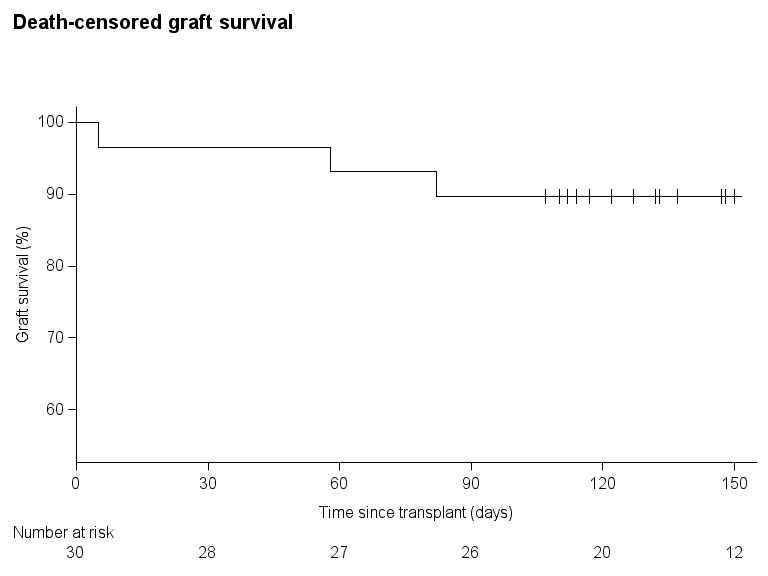Kidney Transplantation from Deceased Donors with Vaccine-Induced Thrombosis and Thrombocytopenia: An Updated Analysis of the UK Experience
NHS Blood and Transplant, Bristol, United Kingdom
Meeting: 2022 American Transplant Congress
Abstract number: 199
Keywords: Cadaveric organs, COVID-19, Kidney transplantation, Vaccination
Topic: Clinical Science » Kidney » 32 - Kidney Deceased Donor Selection
Session Information
Session Name: Kidney Deceased Donor Selection I
Session Type: Rapid Fire Oral Abstract
Date: Monday, June 6, 2022
Session Time: 3:30pm-5:00pm
 Presentation Time: 3:40pm-3:50pm
Presentation Time: 3:40pm-3:50pm
Location: Hynes Ballroom C
*Purpose: Vaccine-induced thrombosis and thrombocytopenia (VITT) is a rare syndrome that has emerged since widespread vaccination against SARS-CoV-2. As a result of the high mortality, some patients have become deceased organ donors. Outcomes after kidney transplantation from donors with VITT are poorly described. Since the disease appears to be antibody-mediated, there is a theoretical risk of transmission from donor to recipient.
*Methods: We examined the UK experience of kidney transplantation from donors with VITT, using data from the UK Transplant Registry. Our outcomes were early graft function, post-operative complications, 3-month estimated glomerular filtration rate (eGFR), patient and graft survival, and disease transmission.
*Results: Thirty patients (including two aged <18 years) received a single kidney transplant from 16 donors with VITT between 1st January and 30th June 2021. After a median follow-up of 5 months, patient and graft survival were 97% and 90%, respectively. Median 3-month eGFR was 51 mL/min/1.73m2. Two recipients had detectable anti-platelet factor 4 antibodies following transplantation, but no evidence of clinical disease. Major haemorrhagic or thrombotic complications occurred in three recipients, resulting in the loss of two grafts.
*Conclusions: The UK experience to date shows that favourable outcomes in kidney transplants from donors with VITT are possible. Ongoing vigilance for donor-related complications in these patients remains important.
| Kidney transplant recipients (n=30) | |
| Female sex | 14 (47%) |
| Age (yr) | 48 (36 – 59) |
| Cold ischaemia time (hr) | 15 (12 – 19) |
| Delayed graft function | 5 (17%) |
| Nadir post-op platelet count (x109/L) | 144 (102 – 230) |
| Nadir post-op fibrinogen (g/L, NR 2-4) | 3.3 (2.5 – 4.2) |
| Peak post-op D-dimer (ng/mL, NR <500) | 2,000 (1,000 – 5,700) |
To cite this abstract in AMA style:
Greenhall G. Kidney Transplantation from Deceased Donors with Vaccine-Induced Thrombosis and Thrombocytopenia: An Updated Analysis of the UK Experience [abstract]. Am J Transplant. 2022; 22 (suppl 3). https://atcmeetingabstracts.com/abstract/kidney-transplantation-from-deceased-donors-with-vaccine-induced-thrombosis-and-thrombocytopenia-an-updated-analysis-of-the-uk-experience/. Accessed February 24, 2026.« Back to 2022 American Transplant Congress

